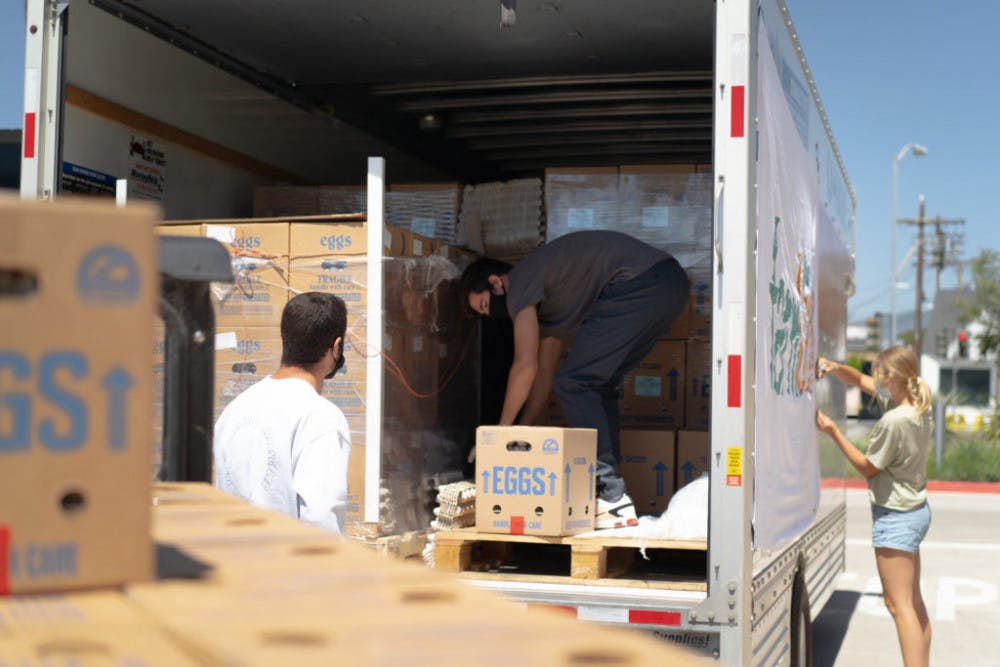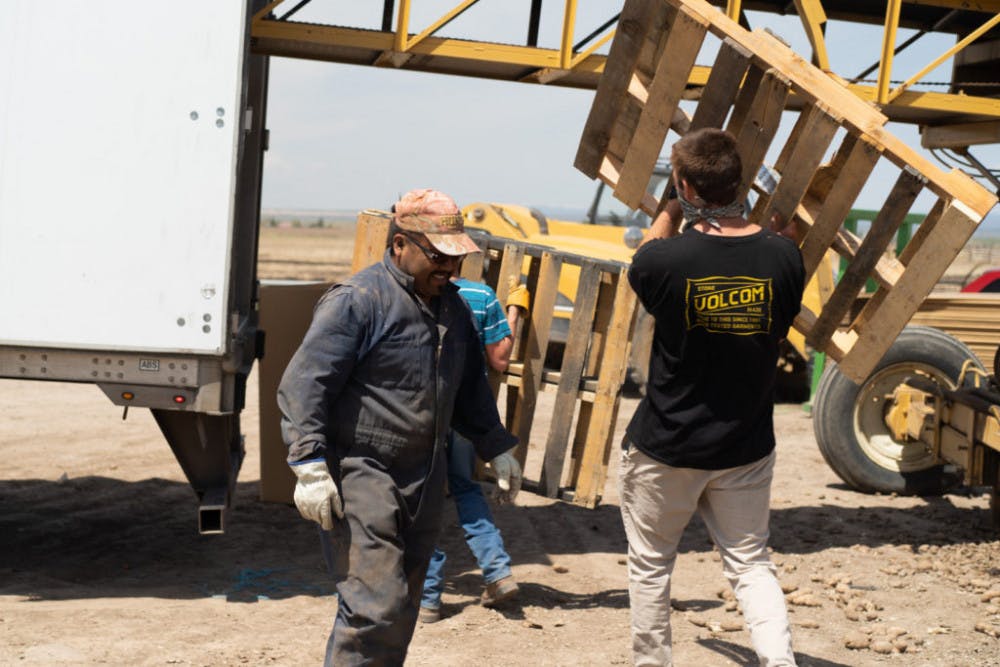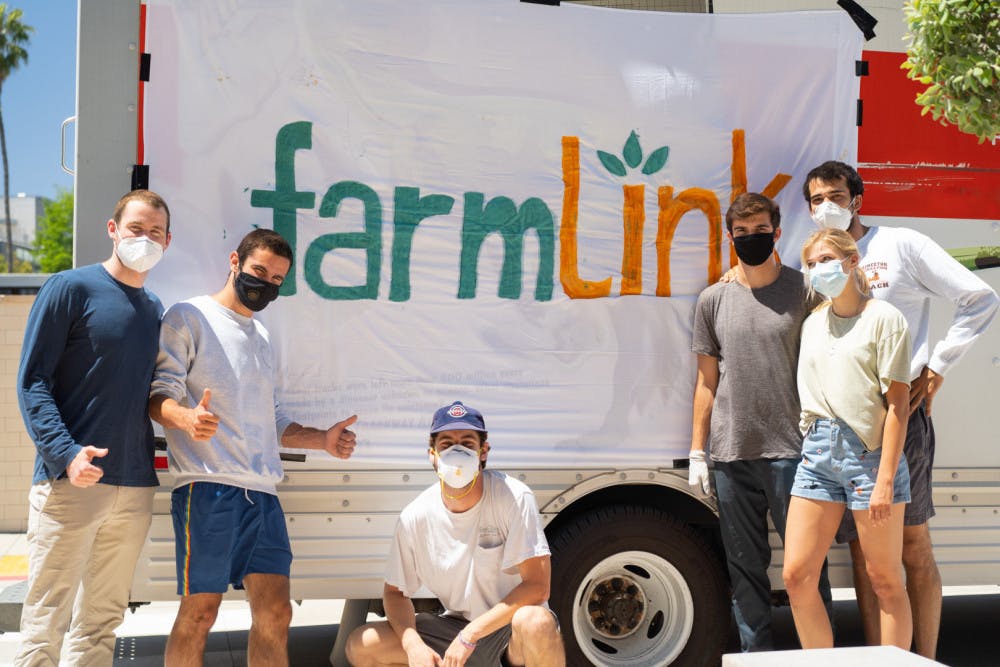In recent months, Brown students have been leading a nationwide food redistribution effort to help farms whose usual supply chains have been disrupted.
With the COVID-19 pandemic restricting businesses, decreased demand from restaurants and stores has made selling produce difficult for commercial farms, resulting in large amounts of waste. At the same time, food banks across the country are experiencing a significant increase in demand. FarmLink, a non-profit food redistribution initiative started and run in part by University students, buys surplus produce from farmers and delivers it to food banks to minimize waste and offer support in a time of economic uncertainty.
The initiative was founded by Aidan Reilly ’21 and James Kanoff, a student from Stanford University, in April, initially through monetary donations from friends and family. Now, it has volunteers from several colleges across the country and a fiscal sponsorship from Food Finders, a California-based food rescue organization, that helps FarmLink increase monetary donations. According to the initiative’s mission statement, “100% of donations to FarmLink are used to pay the wages of farm workers and truckers.”
After reaching out to farms to determine interest, FarmLink offers to buy surplus produce and bring it to food banks. According to their website, the non-profit has delivered 570,000 pounds of food and provided $35,000 in economic relief to farmers. For farms without transportation means, FarmLink also finds truck drivers and trucks to deliver the produce by working with Uber Freight.

“The big issue right now is that there is a separate system by which restaurants (get) food … even though it’s just food and it’s going from farms to tables,” said Duke DiEugenio ’21.5, a member of FarmLink’s media team. “The farms can’t just magically say, ‘Okay, it’s time to sell this to grocery stores or donate it,’ … because they don’t have any of that infrastructure built up.”
Jessy Ma ’21, who initially joined FarmLink as part of the tech team, told The Herald “a lot of farmers have been forced to resort to essentially throwing away all of their surpluses.” FarmLink hopes to address “this obvious gap between the tons of food that are going to waste (and) the hunger that accompanies, especially among vulnerable populations.”
While FarmLink has been able to eliminate a lot of food waste, it can be harder to do so for high-price goods such as cheese, or organic fruits and vegetables. “It’s kind of sad when there’s farms that do have surplus that we have to turn down because the price that they’re charging for it is just unaffordable for us,” Ma said. “We had to kind of limit our work to farms that have a huge amount of surplus and can therefore charge a lower price for it.”

Working for FarmLink has not only provided students an opportunity to help others, it has also helped them gain professional work experience in the nonprofit sector. “I kind of realized I really do like non-profit work, or the feeling of it being a very grassroots effort,” Ma said. “Being able to contribute to something that’s making such a large-scale impact” has been extremely rewarding.
“I’m concentrating in architecture and a lot of my work is sort of centered around urban planning, (and) environmental and food systems,” DiEugenio said. “So, the fact that I got to jump on board with this has been super fun.”
Since FarmLink was created to fulfill a current need created by the pandemic, the long-term future of the initiative has yet to be determined. According to Ma, FarmLink is trying to focus on the present with the hope that they are laying the groundwork for future similar initiatives. Ma said they hope to do “groundwork and set up this system where people can be able to continue this work.”

Jack Walker served as senior editor of multimedia, social media and post- magazine for The Herald’s 132nd Editorial Board. Jack is an archaeology and literary arts concentrator from Thurmont, Maryland who previously covered the Grad School and staff and student labor beats.





